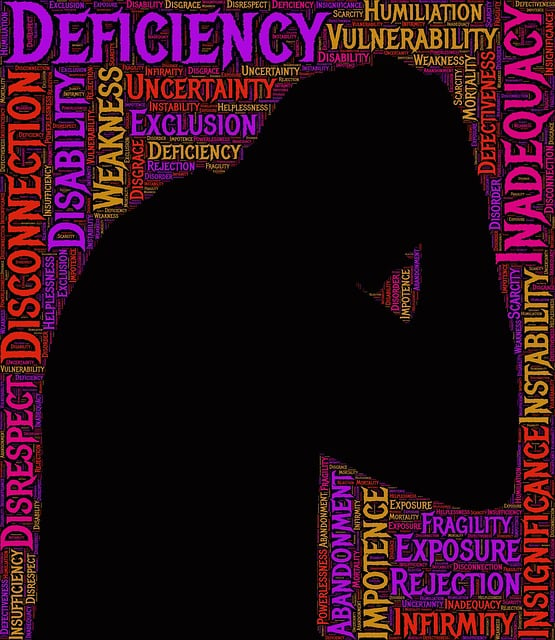Understanding risk is key to successful mental health practice, including Golden Parenting Skills therapy. Therapists identify and assess potential hazards like emotional triggers or ethical dilemmas, then implement safety measures to protect clients and themselves. Integrating Social Skills Training, ongoing best-practice training, and Golden Parenting Skills fosters safer environments and enhances care quality. This approach prioritizes emotional connection, open communication, and resilience-building, reducing risks of mental health issues like depression. Comprehensive strategies, including policy analysis, self-care routines, and stress management workshops, create a holistic risk management system within therapy.
In the demanding field of mental health, effective risk management planning is paramount to ensuring client safety and fostering therapeutic environments. This article guides mental health professionals through a comprehensive approach to risk assessment and mitigation. We explore ‘Understanding Risk in Mental Health Practice’, delving into identifying potential hazards. Then, we uncover the power of ‘Golden Parenting Skills’ as an innovative strategy for creating safe spaces conducive to healing. Lastly, we highlight ‘Therapy as a Risk Mitigation Tool’, sharing strategies to enhance resilience and adaptability in therapeutic settings.
- Understanding Risk in Mental Health Practice: Identifying and Assessing Potential Hazards
- Golden Parenting Skills for Effective Risk Management: Creating a Safe Space for Healing
- Therapy as a Risk Mitigation Tool: Strategies for Building Resilience and Adaptability
Understanding Risk in Mental Health Practice: Identifying and Assessing Potential Hazards

Understanding risk is a cornerstone of effective mental health practice. In the context of therapy and Golden Parenting Skills, professionals must be vigilant in identifying and assessing potential hazards that could impact client well-being. These risks can range from emotional triggers within the therapeutic relationship to external factors such as privacy breaches or ethical dilemmas. By proactively recognizing these dangers, therapists can implement robust safety measures to protect both clients and themselves during the healing process.
One key aspect of risk management involves integrating Social Skills Training into mental health education programs design. This proactive approach equips both professionals and clients with tools to navigate challenging situations, fostering a safer therapeutic environment. Additionally, ongoing training in mental wellness best practices ensures that practitioners stay informed about emerging risks and evidence-based strategies for mitigation, ultimately enhancing the overall quality of care provided.
Golden Parenting Skills for Effective Risk Management: Creating a Safe Space for Healing

In the field of mental health therapy, creating a nurturing and secure environment is paramount for effective risk management. This involves employing what are often referred to as Golden Parenting Skills—a set of practices that foster resilience and healing in clients. Similar to how mindful parenting shapes a child’s development, these skills enable therapists to establish a safe space where individuals can explore their emotions, memories, and experiences without fear or judgment. By cultivating non-judgmental listening, active empathy, and open communication, therapists create an atmosphere of trust that encourages self-reflection and growth.
Self-Awareness Exercises and Stress Management Workshops play a pivotal role in equipping mental health professionals with the tools to recognize their own emotional states and manage them effectively. Burnout Prevention Strategies for Healthcare Providers are also essential, as they help maintain resilience and reduce the risk of professional exhaustion. These holistic approaches not only benefit the therapist but also enhance their ability to support clients in navigating challenging situations, ultimately contributing to a more productive and therapeutic environment.
Therapy as a Risk Mitigation Tool: Strategies for Building Resilience and Adaptability

Therapy plays a pivotal role in risk management for mental health professionals, acting as a robust tool to mitigate risks and foster resilience among clients. Golden Parenting Skills Therapy, for instance, offers unique strategies that enhance adaptability. This therapeutic approach equips individuals with effective coping mechanisms, enabling them to navigate life’s challenges more gracefully. By focusing on building strong emotional connections and fostering open communication, therapists can significantly reduce risks associated with mental health issues like depression.
Integrating Mental Health Policy Analysis and Advocacy into therapy sessions further strengthens risk mitigation efforts. Through advocacy, clients learn about relevant policies and resources that support their well-being. Additionally, encouraging Self-Care Routine Development for Better Mental Health becomes a proactive measure, empowering individuals to take charge of their mental health proactively. This multifaceted approach ensures a holistic risk management strategy within the therapeutic setting.
Mental health professionals face unique challenges that require proactive risk management. By understanding and identifying potential hazards, practitioners can employ effective strategies like Golden Parenting Skills to create safe, nurturing environments facilitating healing. Additionally, therapy serves as a powerful tool for mitigating risks by fostering resilience and adaptability in clients. Integrating these approaches ensures a comprehensive risk management plan tailored to the nuanced needs of mental health practice, ultimately enhancing patient outcomes and well-being.











